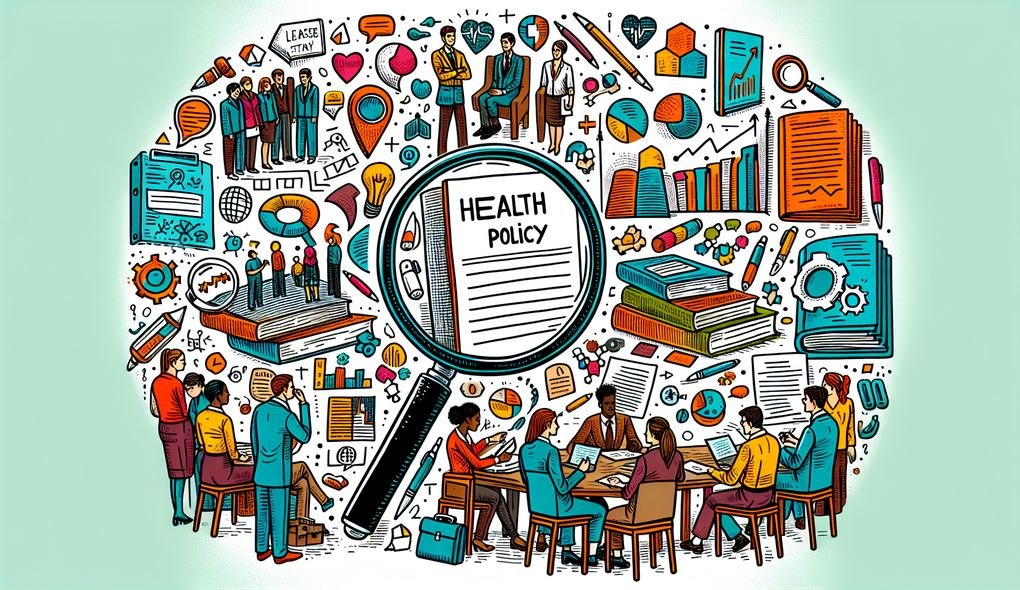How do you go about providing policy recommendations based on quantitative and qualitative research methodologies?
SENIOR LEVEL

Sample answer to the question:
When providing policy recommendations, I start by conducting both quantitative and qualitative research. For quantitative research, I collect data from various sources such as surveys, databases, and reports. I then analyze the data using statistical methods to identify trends and patterns. For qualitative research, I conduct interviews, focus groups, and literature reviews to gain a deep understanding of the issue at hand. Once I have gathered and analyzed the data, I synthesize the findings to develop evidence-based policy recommendations. I then communicate these recommendations through clear and concise reports, briefs, and presentations. Throughout the process, I collaborate and engage with stakeholders to ensure that their perspectives are considered in the policy recommendations.
Here is a more solid answer:
In providing policy recommendations, I follow a systematic approach that combines quantitative and qualitative research methodologies. For quantitative research, I employ statistical analysis to analyze data obtained from surveys, databases, and reports. I use tools like SPSS and Excel to identify trends, correlations, and patterns in the data. For qualitative research, I conduct in-depth interviews, focus groups, and literature reviews to gain deep insights into the issue. I also pay attention to the context and cultural factors that may influence the policy recommendations. After gathering and analyzing the data, I synthesize the findings to develop evidence-based recommendations. To ensure the recommendations are effective, I engage with stakeholders throughout the process, seeking their input and considering their perspectives. I communicate the recommendations through clear and concise reports, briefs, and presentations, tailored to the intended audience. This approach allows me to provide comprehensive and well-informed policy recommendations.
Why is this a more solid answer?
The solid answer provides more specific details on the candidate's research methodologies, including the tools used for data analysis. It also emphasizes the importance of considering cultural factors and engaging with stakeholders throughout the process. However, it can be further improved by elaborating on how the candidate ensures the effectiveness of the recommendations and by providing examples of past projects or experiences.
An example of a exceptional answer:
In my experience, providing policy recommendations requires a comprehensive approach that integrates quantitative and qualitative research methodologies. For quantitative research, I employ advanced statistical techniques to analyze large data sets obtained from diverse sources such as national surveys, claims databases, and clinical trials. I am proficient in programming languages like R and Python, which enable me to perform complex analyses and visualize data in impactful ways. In addition to analyzing trends and patterns, I conduct cost-effectiveness analyses and apply econometric models to assess the potential economic impact of the proposed policies. For qualitative research, I conduct in-depth interviews with key stakeholders, including patients, healthcare professionals, and policymakers, to understand their perspectives and experiences. I also conduct literature reviews and policy analyses to contextualize the findings. To ensure the effectiveness of the recommendations, I actively engage with stakeholders throughout the research process, seeking their input and involving them in the decision-making. I have successfully led cross-functional projects where I collaborated with multiple stakeholders to develop and advocate for evidence-based policies. For example, I led a project to develop a comprehensive tobacco control policy, collaborating with government agencies, NGOs, and healthcare providers. This involved conducting research, analyzing data, and presenting policy recommendations to policymakers. The policy was subsequently implemented, leading to a significant reduction in smoking rates. I believe that my strong analytical skills, research experience, and collaborative approach make me well-suited for providing policy recommendations that have a real impact on improving health outcomes.
Why is this an exceptional answer?
The exceptional answer provides even more specific details on the candidate's research methodologies, including the use of advanced statistical techniques and programming languages. It also highlights the candidate's experience in leading cross-functional projects and providing policy recommendations that have had a significant impact. The answer includes a specific example of a successful project and highlights the candidate's strong analytical skills and collaborative approach. It effectively demonstrates the candidate's qualifications and abilities related to the job description and evaluation areas.
How to prepare for this question:
- Familiarize yourself with different quantitative and qualitative research methodologies, such as survey design, statistical analysis, and interview techniques.
- Stay updated on current health policies and legislative developments at local, national, and international levels.
- Gain experience in using data analysis software and programming languages commonly used in health policy analysis, such as SPSS, Excel, R, and Python.
- Develop your presentation and communication skills by practicing concise and clear communication of complex ideas.
- Seek opportunities to collaborate with stakeholders and work on cross-functional projects to gain experience in stakeholder engagement and strategic planning.
What are interviewers evaluating with this question?
- Quantitative and qualitative research methods
- Policy analysis
- Data analysis and interpretation
- Presentation and communication skills
- Stakeholder engagement

